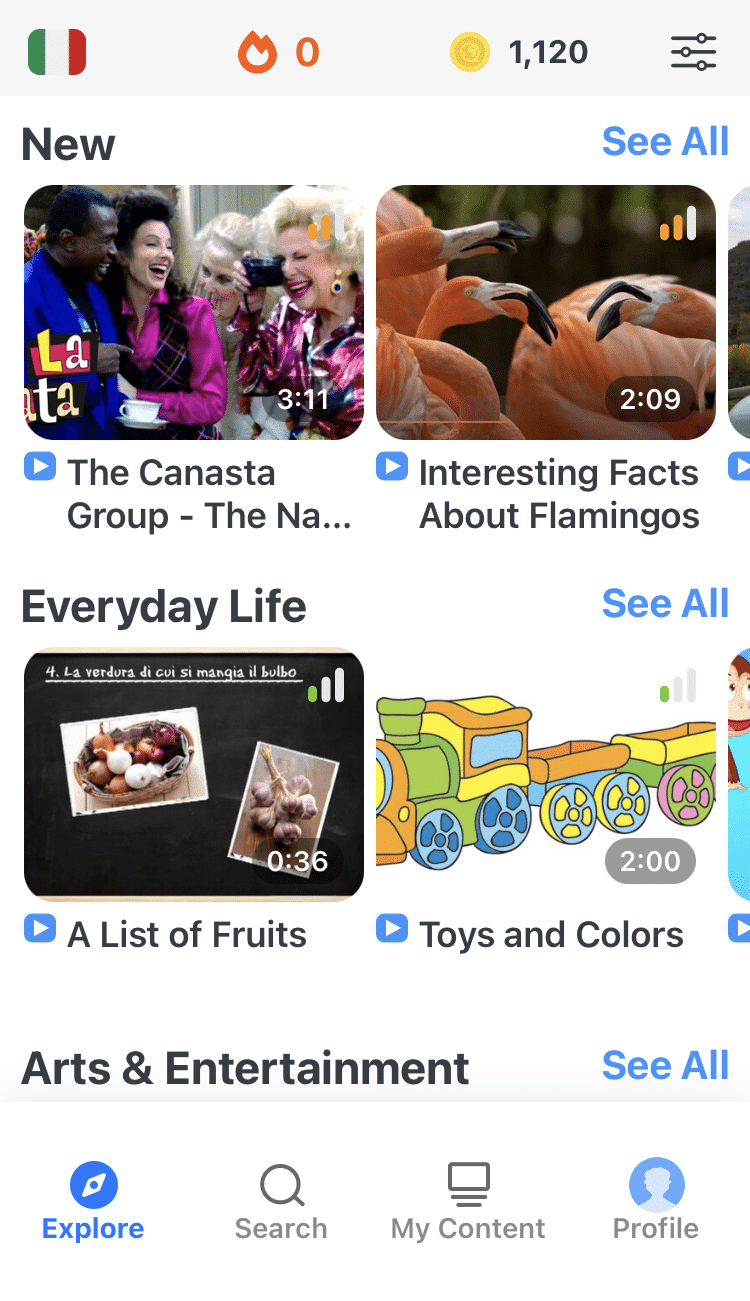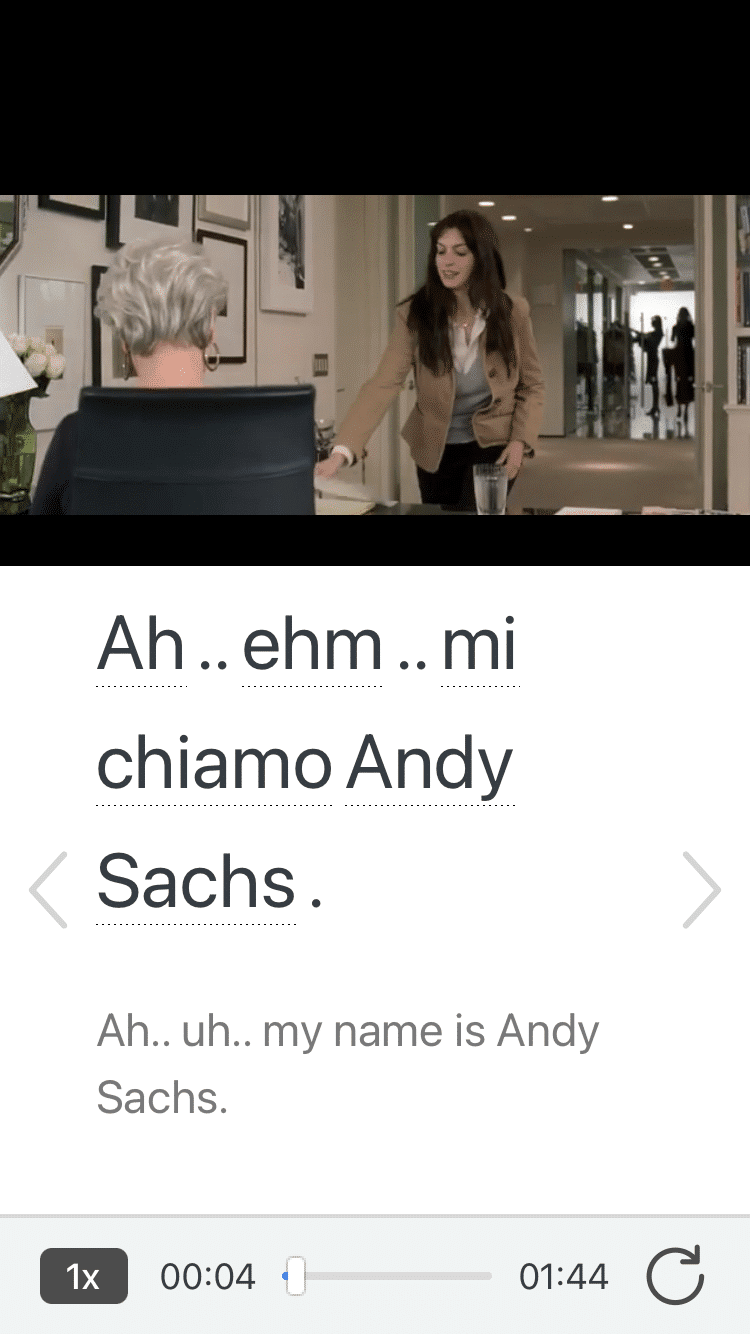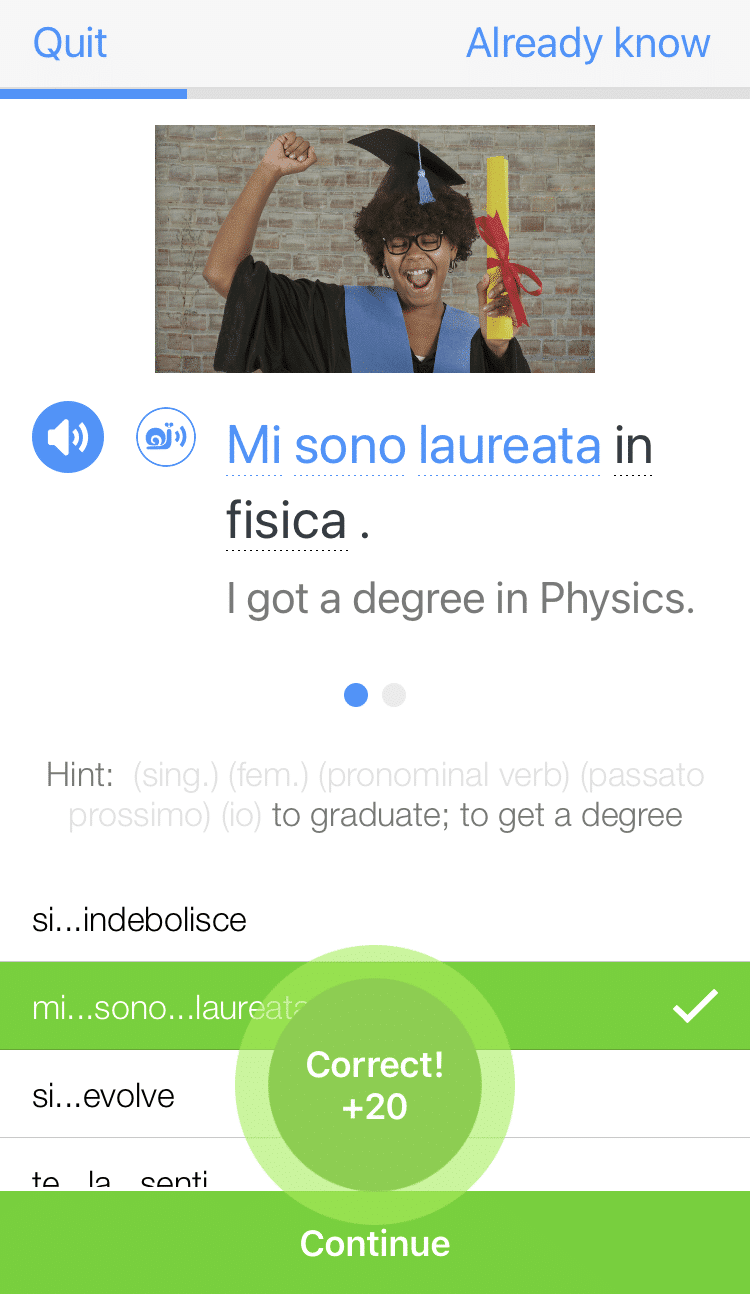
Italian Days of the Week
Knowing the Italian days of the week is necessary for various reasons.
It helps you schedule coffee dates with native speakers, figure out plans with friends, as well as avoid the museum on the one day of the week it’s actually closed.
In this post, we’ll look into each day of the week, as well as cultural tidbits to get to know the Italians a little better.
So, let’s begin learning about la settimana (the week).
Contents
- Days of the Week in Italian
- Useful Vocabulary for Talking About the Days of the Week
- How to Use the Italian Days of the Week
- And One More Thing...
Download: This blog post is available as a convenient and portable PDF that you can take anywhere. Click here to get a copy. (Download)
Days of the Week in Italian
Most Italian days of the week end with -dì, much like how our English days end with -day. This is because -dì is a derivative of the Latin word for day, from which we get phrases like per diem (per day).
| Italian | English | Phonetic Pronunciation | IPA Pronunciation |
|---|---|---|---|
| Lunedì | Monday | loo-ne-DEE | [luneˈdi] |
| Martedì | Tuesday | mar-te-DEE | [marteˈdi] |
| Mercoledì | Wednesday | MER-ko-le-DEE | [merkoleˈdi] |
| Giovedì | Thursday | jo-ve-DEE | [dʒoveˈdi] |
| Venerdì | Friday | ve-ner-DEE | [venerˈdi] |
| Sabato | Saturday | SA-ba-to | [ˈsabato] |
| Domenica | Sunday | do-ME–nee-ka | [doˈmenika] |
As you’ll see, the days of the week each correspond with a celestial body and in turn, a Roman god or goddess. The exception to this is Sunday, which was named after the Christian god.
Let’s now have a look at each day in more detail.
1. Lunedì — Monday
Pronunciation: loo-ne-DEE
Abbreviation: lun.
Lunedì comes from the day of the lunar moon and is considered to be the beginning of the workweek.
While Americans tend not to like Monday, Italians may greet you with a “Buon lunedì” (Happy Monday!).
As they start their workweek, Italians will usually start working at 8 am and don’t take their lunch until 1 pm. But when they do take their lunch, they take it seriously.
The extended lunch is called riposo, lasts anywhere from two to four hours and usually includes home-cooked meals, a nap or some errands. It’s also very often called riposino, which is a diminutive of riposo.
Although it’s not as common in the big cities, this cultural norm clearly demonstrates the Italian emphasis on work-life balance.
2. Martedì — Tuesday
Pronunciation: mar-te-DEE
Abbreviation: mar.
We go now to the second day of the workweek (and to more riposo)—martedì.
This day’s namesake is the planet Mars, also the name of the Roman god of war.
3. Mercoledì — Wednesday
Pronunciation: MER-ko-le-DEE
Abbreviation: mer.
It’s Wednesday, the third day of the workweek, and the day of the planet Mercury, aka the Roman god of commerce.
Since the day is represented by a god of commerce, it only makes sense that it would also be the market day for the city of Siena.
You can go to Siena’s market on mercoledì and find everything from food to wine to household goods.
4. Giovedì — Thursday
Pronunciation: jo-ve-DEE
Abbreviation: gio.
We’ve come to the middle of the week, named after Jupiter (god of the sky)—giovedì.
By this time, you’re not quite to the weekend, but you’re close enough that you’re starting to have that sense of relaxation.
The Italians have an expression that embodies that exact feeling: Sei come il giovedì (You’re like Thursday).
Just as giovedì is in the middle of the week, the expression refers to someone who’s always in the middle of some dramatic situation, whether it’s something about their job, their family or their love life.
So if someone tells you you’re like Thursday in Italy, just know that they are calling you a drama queen.
5. Venerdì — Friday
Pronunciation: ve-ner-DEE
Abbreviation: ven.
Thank God (or Venus, the goddess of love) it’s Friday! Unless it’s venerdì… the 17th.
In other countries, peoples’ hearts skip a beat when it’s Friday the 13th. However, if you go to Italy, you’ll find that 13 is actually a lucky number and it’s the 17th that sends chills down everyone’s spines.
The Italians are extremely superstitious about this date, so much so that people will skip work or even entirely close down their businesses.
This is because the number 17, when written in Roman numerals, is XVII. Italians see this as an anagram for VIXI, which means “I have lived,” as in you’re currently dead.
The superstition is so widely observed that you might find it difficult to get onto the 17th floor of an Italian hotel or find a seat on the 17th row in the theater.
6. Sabato — Saturday
Pronunciation: SA-ba-to
Abbreviation: sab.
Ah, sabato… the first full day of the weekend.
As you can see, sabato is very similar to the Spanish sábado, both of which are based on the Latin sabbatum and the Hebrew Shabbat meaning “sabbath” or “day of rest.”
7. Domenica — Sunday
Pronunciation: do-ME-nee-ka
Abbreviation: dom.
This is the only day of the week in honor of the Christian God rather than a Roman God. This is rather fitting, considering that this is most Christian Italians’ day of worship.
Aside from going to church, Italians love easy Sundays. After all, it’s the fine settimana (weekend).
Especially in smaller cities and towns across the country, domenica can easily be spent lazying around or spending time with friends and family.
Italians will typically hold a Sunday lunch or dinner that will carry on for hours and be full of food, wine and conversation. If there’s time, a passeggiata (a stroll) might be needed to walk off all that pasta and enjoy the outdoors.
Useful Vocabulary for Talking About the Days of the Week
Since you’re already familiar with the Italian days of the week, I’ll show you essential phrases that you can use them with. Whether you’re planning a trip or making an appointment, you’ll want to know these vocabulary
Keep in mind that definite articles like la, il and lo are usually not used before days of the week unless you mean that something happens “every time.”
To get the hang of these time-related phrases, try to listen to native speakers actually use the vocabulary.
This is where Italian movies, series and podcasts come in handy. If you don’t have time for a full-length episode, FluentU has hundreds of short and engaging Italian media clips.
FluentU takes authentic videos—like music videos, movie trailers, news and inspiring talks—and turns them into personalized language learning lessons.
You can try FluentU for free for 2 weeks. Check out the website or download the iOS app or Android app.
P.S. Click here to take advantage of our current sale! (Expires at the end of this month.)
How to Use the Italian Days of the Week
The Italian days of the week pop up in conversation all the time—you’ll even hear Italians casually saying the abbreviations out loud, like dom for domenica or ven for venerdì. If you want to practice using the days of the week, include them as much as possible in your daily interactions.
Before you start using them, though, here are some final grammar rules to remember:
Days of the week are not capitalized in Italian
Unlike in English, you don’t capitalize the Italian days of the week, as you might have noticed from the example sentences. You’ll pretty much only see them capitalized if they’re part of a title or headline or at the start of a sentence.
Most of the days of the week are masculine
Lunedi all the way to sabato are considered masculine nouns—that’s a total of six days. Only domenica is feminine.
The days of the week aren’t often used with articles, though, so you likely won’t have to think about their gender that much!
Use the prepositions di, a, and dal / dalla
Let’s take a look at the common prepositions you’ll need to use with days of the week in Italian.
- Di — of. For example: Ci vediamo il primo lunedì di ogni mese (We meet on the first Monday of each month)
- A — in. This is also used sometimes for appointments or arrival times, for example: A mercoledì (See you on Wednesday)
- Dal or dalla — from. For example: Dal giovedì (Starting Thursday)
Italian days of the week generally don’t need articles
The main exception to this is when you want to say that an action or event happens regularly, such as “every Monday.” That’s when you’ll use definite articles (il or la). For example:
Non lavoro il sabato. (I don’t work on Saturdays.)
Italian days of the week have no plurals
This might be a relief because it means there are less grammar rules to remember! You can simply add an article without using pluralizing the day, like we saw above. For example:
Mi piace stare a casa la domenica. (I like to stay home on Sundays.)
So, now you know the days of the Italian week.
Make the days count, and use them often to continually study this beautiful language.
Download: This blog post is available as a convenient and portable PDF that you can take anywhere. Click here to get a copy. (Download)
And One More Thing...
If you're as busy as most of us, you don't always have time for lengthy language lessons. The solution? FluentU!
Learn Italian with funny commericals, documentary excerpts and web series, as you can see here:

FluentU helps you get comfortable with everyday Italian by combining all the benefits of complete immersion and native-level conversations with interactive subtitles. Tap on any word to instantly see an image, in-context definition, example sentences and other videos in which the word is used.

Access a complete interactive transcript of every video under the Dialogue tab, and review words and phrases with convenient audio clips under Vocab.

Once you've watched a video, you can use FluentU's quizzes to actively practice all the vocabulary in that video. Swipe left or right to see more examples of the word you’re on.

FluentU will even keep track of all the Italian words you’re learning, and give you extra practice with difficult words. Plus, it'll tell you exactly when it's time for review. Now that's a 100% personalized experience!
The best part? You can try FluentU for free with a trial.
Start using the FluentU website on your computer or tablet or, better yet, download the FluentU app from the iTunes or Google Play store. Click here to take advantage of our current sale! (Expires at the end of this month.)



